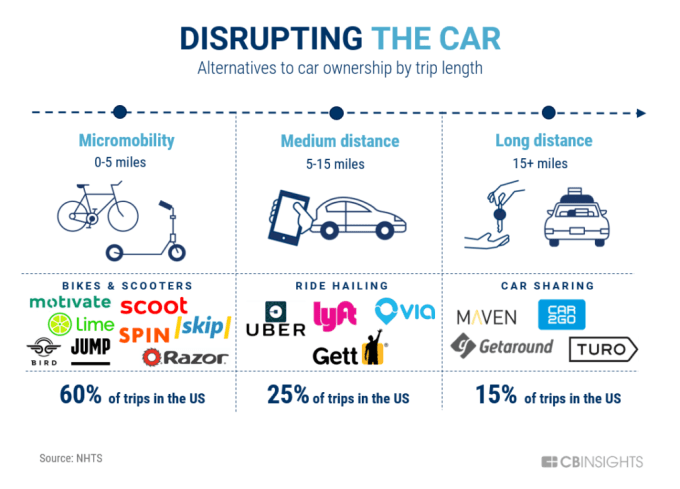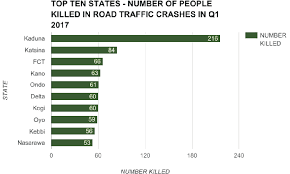From February 1, 2020 commercial bikes and tricycles are expected to disappear from the highways of Nigeria’s most populous city, Lagos. At the flick of a pen, a new order has been made which places a permanent ban on all motorcycles or tricycles on the city’s major highways.

“After consultations with the stakeholders, the state security council, in compliance with the extant transport sector reform laws 2018 has decided to commence enforcement of the law which bans motorcycles and tricycles,” Gbenga Omotoso, the Lagos State Commissioner for Information and Strategy said in a statement.
For investors in Lagos’ teeming innovative startup ecosystem that relies on technology to power commercial bikes or tricycle activities, this may be the end of the road, at least in the meantime.
‘‘For People asking: “What of Opay, Gokada and the rest, are they part of this?”
Lagos State Govt says YES. All forms of Commercial Motorcycles are included,’’ Jubril A. Gawat, government spokesman said in a tweet.

In May 2019, Rise Capital with Adventure Capital, First MidWest Group, IC Global Partners and other investors led a $5.3 million investment in Gokada, an on-demand motorcycle taxi startup. A month after, this was exceeded by another motorcycle startup, MAX.ng which raised a $7 million funding round led by Novastar Ventures, with the participation of Japanese manufacturer Yamaha, an investment which brought the startup’s total funding to $9 million. Inspired by the funding MAX.ng planned introduction of electric motorcycles. And yet five months later, in November 2019,Opera’s Africa-focused fintech startup added a new $120 million to its $50 million series A round which it raised in June of 2019, backed by Chinese investors.
Now all those investments look threatened.
‘‘With effect from February 1, 2020, the ban will affect Local Government Areas and Local Council Development Areas such as
Apapa
Apapa-Iganmu
Yaba
Lagos Mainland
Surulere
Itire-Ikate
Coker-Aguda
Ikeja
Onigbongbo
Ojodu
Eti-Osa
Ikoyi-Obalende
Lagos Island
Lagos Island LCDA,’’ the order further reads.
For avid watchers of what had been happening on Lagos ’ major highways, it is safe to concede that the handwriting had been on the wall for some time now. Previous to this, Lagos government’s rule against the use of bikes on the highways of Nigeria’s most populous city has been so tight.
In 2012, the Lagos State Road Traffic Law was signed into law, restricting only motorcycles or tricycles with engine capacities below 200cc from operating on nearly 500 highways and bridges. This was followed by the transport sector reform laws of 2018 which allowed bikes and tricycles with engine capacities above 200cc to ply major highways — the most common okada brands on Lagos streets are 150 cc and less.
However even before the signing into law of the new executive order, there had been flagrant violation of the rights of motorcycle-hailing startups that met the 200cc engine capacity threshold. In 2019, the Lagos State Task Force on Environmental Sanitation and Special Offences impounded 115 motorcycles, including 22 branded commercial motorcycles, including ‘Gokada’ and its competitor ‘Maxokada’, for violating the state road traffic laws, particularly for plying on highways.
According to Nigeria Watch Database, traffic accidents account for the most fatalities in Nigeria. In 2015, Nigeria’s Federal Road Safety Corps stated that 5440 people died as a result of car crashes.
This is what the Lagos State government hinged on in reaching its latest decision.
‘‘For people asking .. “What of Alternatives?”
Lagos State Govt says Buses will be rolled out for these areas but first thing is that, Transportation has to be SAFE & those areas will be adequately,’’ Jubril A. Gawat, further tweeted.
Although it could be argued that bike-hailing could never be a sustainable means of transport in a fast-growing city like Lagos, a survey report by Planet Projects showed that at least three of every 10 years spent in Lagos is lost to traffic. This, therefore, means that residents of Lagos, Nigeria’s economic capital, spend an average of seven hours 20 minutes in traffic every day.
The Implications Of This New Order On Existing Startups
Flight Of Investors To Less Hostile Environments
Definitely, this is absolutely the time investors in Africa’s transport sector would have to sit back and watch. And for similar startups in Nigeria hoping to land more funding from investors this year, this is a major blow. Even though Lagos is the most populated city in Nigeria with estimated population of around 17 million, and holding about 15.2% of the country’s entire internet population (14,192,283 subscribes), this ban could most likely see bike-hailing startups migrate to other Nigeria cities, buoyed by their funding. For instance, Lagos’ neighboring state Ogun, with 5,893,286 (6.3%) of active internet subscribers in Nigeria in Q3 2017 is the second state with the highest rate of internet penetration in Nigeria. This is followed by Oyo, FCT, Kano, Kaduna, Rivers, Edo, Delta, and Niger states, all 10 states accounting for more than 54.9% of the internet subscriber base in the country as of in Q3 of 2017. Thus, scaling to other states could be possible, however the uncertainty of government policies and scattered population density of those states (which could increase cost-per-customer acquisition) could mean little or no investment from VCs and possibly a deeper death blow to those startups.
Again, this sudden policy change may direct investors to other countries with less stringent policies. Two major African regions that may benefit from this policy change are the Northern African country of Egypt ( where Cairo, the capital city surpasses Lagos in terms of population and GDP per capita) and East Africa where bike-hailing services had been operating for a long time now without interruption.
One thing one is yet to take away from all these is that the order may even be relaxed in the long run, and greater safety measures introduced to increase efficiency and guarantee more environmental sustainability. Lagos is not the first African city to lead the ban. The Rwandan government did so a few years ago, only to famously back-track on the decision after the streets of Kigali ground to a near halt. Today, Rwanda is encouraging start-ups to take up the challenge of helping the government regulate an industry in which most riders are self-employed.
Whether startups like MAX.ng, Gokada or ORide will come out of this potential deep plunge into bankruptcy stronger or defeated, only time would tell.
Charles Rapulu Udoh

Charles Rapulu Udoh is a Lagos-based lawyer who has advised startups across Africa on issues such as startup funding (Venture Capital, Debt financing, private equity, angel investing etc), taxation, strategies, etc. He also has special focus on the protection of business or brands’ intellectual property rights ( such as trademark, patent or design) across Africa and other foreign jurisdictions.
He is well versed on issues of ESG (sustainability), media and entertainment law, corporate finance and governance.
He is also an award-winning writer.
He could be contacted at udohrapulu@gmail.com

